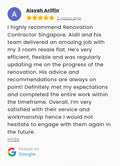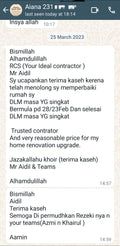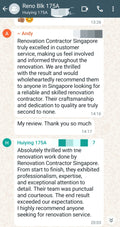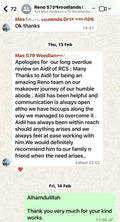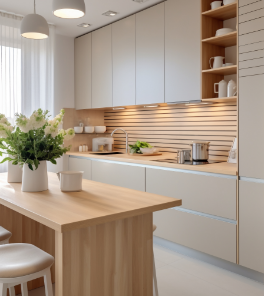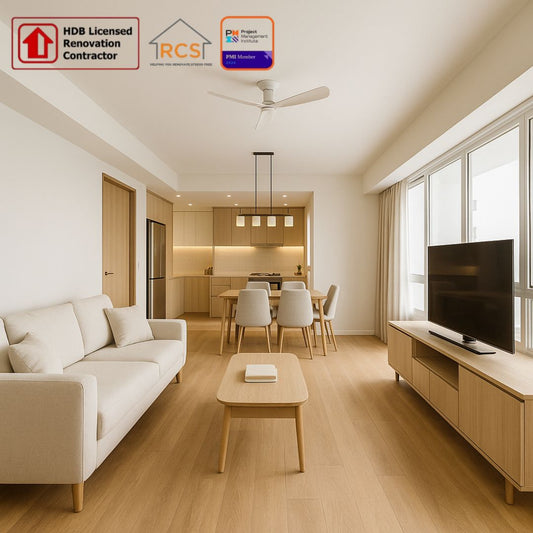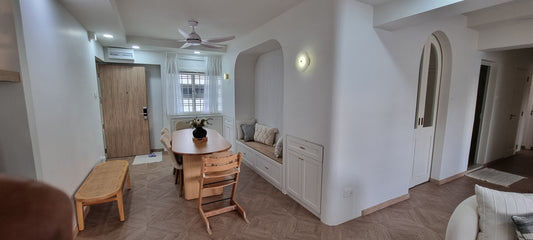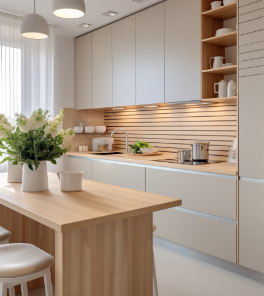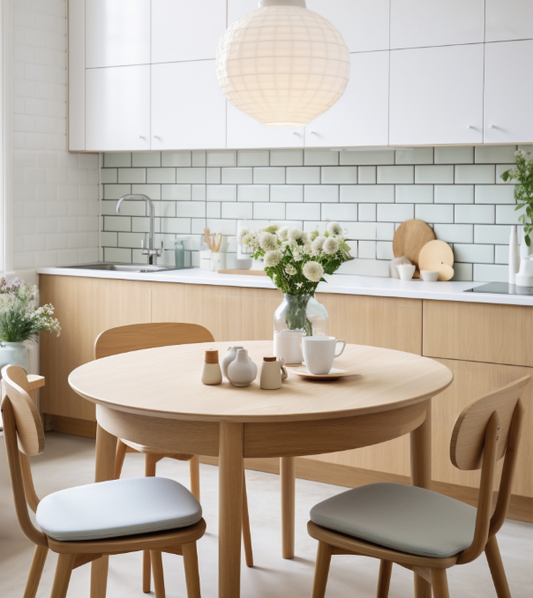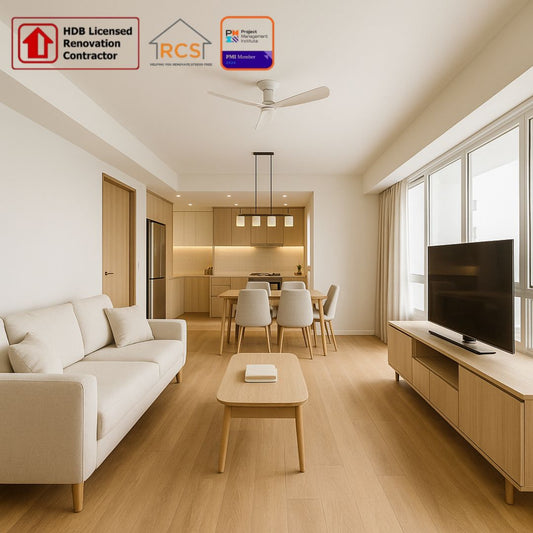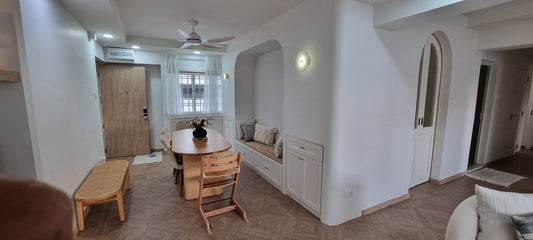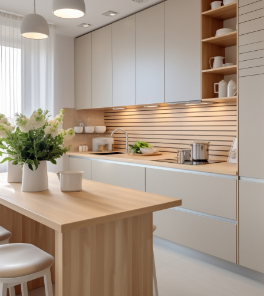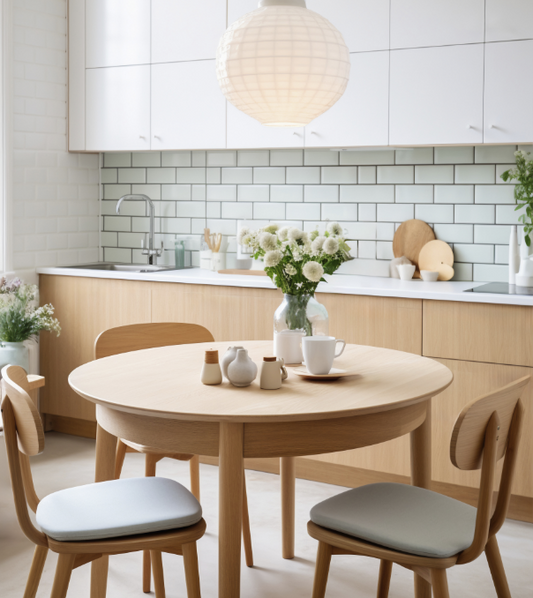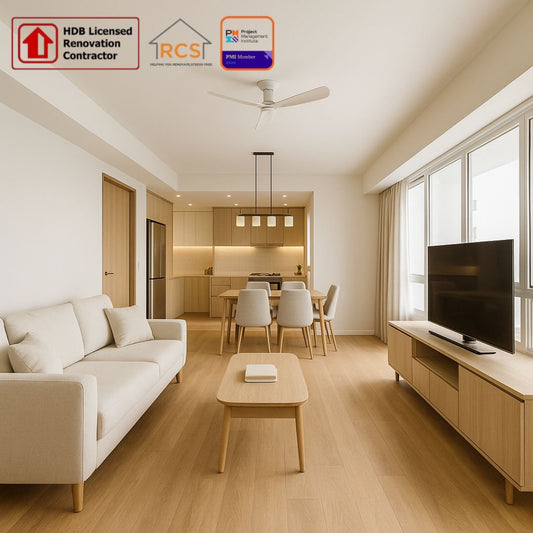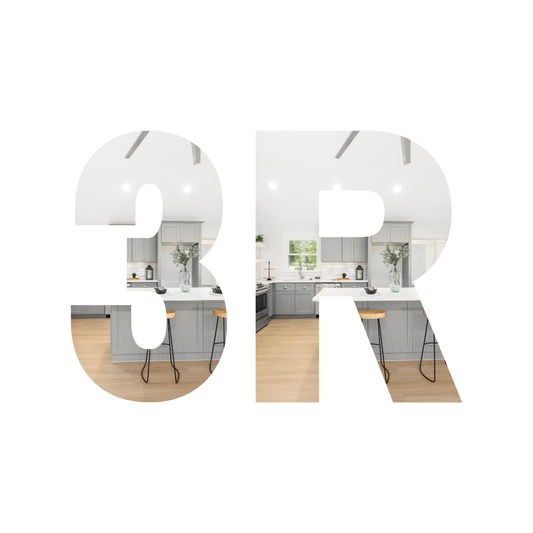Hey there, future homeowner! 👋
So you're thinking about buying property in Singapore? Smart move! But let me tell you - the Singapore property market in 2025 is a whole different beast compared to just a few years ago. The government has thrown in more cooling measures than a Singapore hawker center has air conditioning units, and honestly, navigating this landscape requires some serious know-how.
I've been in this game for years, and I'm going to break down everything you need to know - from HDB flats to luxury condos - in plain English. No jargon, no fluff, just the real deal on how to get your dream home in one of Asia's most expensive cities.
Chapter 1: The Singapore Property Ecosystem - What's What in 2025
Let's start with the basics. Singapore's housing market is like a well-organized Swiss watch - everything has its place, and there are rules for everything. Here's the breakdown:
Public Housing (HDB) - The People's Choice
About 80% of Singaporeans live in HDB flats. These aren't your typical government housing projects - we're talking about well-designed, modern apartments that many countries would consider premium housing.
What you get:
- 2-Room Flexi: 36-45 sqm (perfect for singles or elderly)
- 3-Room: 60-65 sqm (starter family homes)
- 4-Room: 90-95 sqm (the sweet spot for most families)
- 5-Room: 110-115 sqm (spacious family living)
The catch? You need to be a Singapore Citizen or Permanent Resident, and there are strict income limits and ownership rules. But here's the kicker - these flats are heavily subsidized, making them incredibly affordable compared to private property.
Private Condominiums - The Upgrade Path
Once you've outgrown HDB or your income exceeds the limits, condos are your next stop. Prices range from about $1,000 PSF in the suburbs to $3,000+ PSF in prime areas.
2025 Reality Check: With the current cooling measures, buying a condo isn't just about having the money - it's about having the RIGHT money. More on this later.
Executive Condominiums (ECs) - The Sweet Spot
Think of ECs as the hybrid child of HDB and private condos. You get condo-style amenities with HDB-style subsidies and restrictions. Income cap is $14,000-$16,000 monthly, making them perfect for the "sandwich class" - those who earn too much for HDB but find private condos pricey.
Landed Properties - The Holy Grail
Landed houses are the ultimate status symbol, but they come with serious restrictions. Good Class Bungalows (GCBs) are only for Singapore Citizens, while regular landed properties require government approval for foreigners.
Chapter 2: BTO - Your Gateway to Homeownership
Build-To-Order (BTO) is basically HDB's way of saying "we'll build it when you order it." It's the most affordable path to homeownership, but it requires patience and strategy.
The BTO Game Plan for 2025
Step 1: Get Your HFE Letter
This is your golden ticket. The HDB Flat Eligibility (HFE) letter tells you upfront what you qualify for, how much grant money you'll get, and your loan limit. Pro tip: Apply for this at least 2 months before any BTO launch you're interested in. The letter is valid for 9 months.
Step 2: Play the Waiting Game Strategically
Here's some insider intel: HDB is now launching more than 50,000 BTO flats from 2025 to 2027, with about 19,600 BTO flats in 2025 alone. In the February 2025 launch, 8 out of 10 BTO flats have waiting times of 4 years or less.
The Balloting Reality:
Look, BTO balloting is basically a lottery with better odds if you know how to play. Here's what actually works:
- Be flexible with location - Everyone wants the city-fringe locations. Consider the newer towns like Woodlands North or Tengah.
- Apply for less popular projects - Projects located near future MRT stations or in developing areas often have fewer applicants initially
- Use priority schemes - First-timers get better odds, and if you're married with kids, you're golden.
BTO Financial Planning - The Numbers That Matter
Let me break down what you're actually looking at cost-wise:
Income Limits (2025):
- 2-Room Flexi: $7,000 monthly
- 3-Room: $7,000 or $14,000 (depending on project)
- 4-Room and 5-Room: $14,000 monthly
- Multi-generation families: Up to $21,000
The Real Costs:
- Application fee: $10 (non-refundable)
- Option fee: $1-$1,000
- Option exercise fee: Total capped at $5,000
- Renovation: Budget minimum $30,000
- Furniture: Another $30,000
Here's where it gets interesting: From August 2024, first-timer families may qualify for an Enhanced CPF Housing Grant (EHG) of up to $120,000. That's serious money that can bring your out-of-pocket costs way down.
Pro Tips for BTO Success
Timing is everything: The July 2025 BTO launch will offer around 5,400 flats across eight locations, with five projects within 600 metres of an MRT station. Start preparing now.
Location scouting: Don't just look at current amenities. Check the URA Master Plan for future developments. That empty plot next to your potential BTO could become a shopping mall in 5 years.
Financial preparation: Beyond the obvious costs, factor in:
- Monthly conservancy charges ($50-$80)
- Sinking fund contributions
- Fire insurance
- Property tax (minimal for owner-occupied HDB)
Chapter 3: CPF Housing Schemes - Your Secret Weapon
Your CPF isn't just for retirement - it's your property-buying superpower. But use it wisely because every dollar you take out needs to be returned with interest when you sell.
The Grant Money Breakdown (2025 Updates)
Enhanced CPF Housing Grant (EHG):
- New flats: Up to $80,000
- Resale flats: Up to $160,000 (yes, you read that right!)
Family Grant: Additional $10,000 if you're married
Proximity Housing Grant: $20,000 if you're buying near parents
Fresh Start Housing Grant: Increased from $50,000 to $75,000 for eligible second-timer families, effective July 2025
Smart CPF Strategies
The 20K Rule: You can retain up to $20,000 in your CPF Ordinary Account as a buffer when taking an HDB loan. Do this. Seriously. You'll thank me when life happens and you need emergency funds.
Cash vs CPF Payments: Consider paying your monthly installments in cash rather than CPF. Your CPF earns 2.5% interest, and many bank loans are currently around 3-4%. The difference isn't huge, but every bit helps your retirement planning.
Chapter 4: Private Property - Playing in the Big Leagues
Buying private property in Singapore in 2025 is like trying to buy a designer handbag during a recession - possible, but you better have your finances seriously sorted.
The New Reality: Cooling Measures Everywhere
Additional Buyer's Stamp Duty (ABSD) - The Government's Favorite Weapon:
- Singapore Citizens: 0% first property, 20% second, 30% third and beyond
- PRs: 5% first property, 30% subsequent
- Foreigners: 60% for all purchases (yes, you read that correctly!)
Total Debt Servicing Ratio (TDSR): Your total monthly debt payments cannot exceed 55% of your gross monthly income. This includes everything - mortgage, car loans, credit cards, that gym membership you never use.
Loan-to-Value (LTV) Limits:
- First property: 75% LTV
- Second property: 45% LTV
- Third property: 35% LTV
What This Means in Real Money
Let's say you want to buy a $2 million condo (which is pretty much entry-level for a decent 2-bedroom in the city fringe):
If you're a Singapore Citizen buying your first property:
- Down payment: $500,000 (25% of purchase price)
- Cash portion: $100,000 minimum
- Monthly income needed: ~$13,600 to meet TDSR at current rates
If you're a foreigner:
- Down payment: $500,000
- ABSD: $1,200,000 (ouch!)
- Total upfront: $1,700,000 before legal fees and stamp duty
- Monthly income needed: Same $13,600, but you're essentially buying the property twice
Condo Investment Strategy 2025
Location, Location, Location (But Make it Smart):
The old rule still applies, but with a twist. The Rest of Central Region (RCR) has been the strongest performer, recording about 6.5% price increase in 2024, while Core Central Region (CCR) properties grew by about 4%.
Translation: City-fringe condos are outperforming ultra-luxury properties. HDB upgraders are driving demand in the $1.5-2.5M range.
Rental Yields Reality Check:
- Mass market condos: 2.5-3.5% gross rental yield
- Luxury condos: 2-3% gross rental yield
- If your rental income is $4,000 per month, banks only count $2,800 for TDSR calculations (70% haircut)
The Multiple Property Challenge:
With ABSD at 20% for second properties and tight TDSR rules, expanding to a third property is quite challenging, especially when resale non-landed homes average $1,734 PSF.
Chapter 5: Financing Your Singapore Property Dreams
HDB Loans vs Bank Loans - The Great Debate
HDB Loans (The Safe Choice):
- Interest rate: 2.6% (fixed, based on CPF rate + 0.1%)
- LTV: Up to 75% (reduced from 80% in August 2024)
- No income requirements beyond HDB eligibility
- No early repayment penalties
Bank Loans (The Flexible Choice):
- Interest rates: 3-4.5% (floating rates based on SORA)
- LTV: Same 75% for HDB, but more flexible terms
- Stricter income requirements
- More package benefits (insurance, credit cards, etc.)
SORA vs Fixed Rate - 2025 Edition
Singapore Overnight Rate Average (SORA) is now the benchmark for floating-rate home loans, with banks like OCBC and DBS offering SORA-based loans. Here's the thing about SORA - it's been relatively stable, but economic conditions can change quickly.
My take: If you're conservative and want predictable payments, stick with HDB loans for HDB properties. For private properties, SORA packages often offer better long-term value, but only if you can handle payment fluctuations.
The TDSR Calculation That Actually Matters
Let me give you the real formula that banks use:
Total Monthly Obligations ÷ Gross Monthly Income ≤ 55%
Here's what counts as "obligations":
- Your new mortgage payment
- Existing mortgages
- Car loans
- Personal loans
- Credit card minimum payments (even if you pay in full)
- Any other debt service
Pro tip: Pay off or restructure smaller debts before applying for your home loan. That $500 monthly car loan payment could cost you $100,000 in borrowing power.
Chapter 6: Executive Condominiums - The Underrated Option
ECs are honestly one of the best-kept secrets in Singapore property. You get the condo lifestyle with government subsidies, but there are catches.
EC Eligibility (The Sweet Spot)
- Monthly household income: $14,000-$16,000
- Must be Singapore Citizen (at least one applicant)
- Cannot own other properties
- 5-year Minimum Occupation Period
Why ECs Make Sense in 2025
Pricing advantage: ECs are typically 20-30% cheaper than comparable private condos when new. After 10 years, they get privatized and trade like regular condos.
Financing flexibility: You can use HDB loans AND get CPF housing grants. That's a massive advantage over private condos.
Location strategy: Recent EC projects are in well-connected areas. Check out locations like Tengah, Tampines, and the upcoming launches.
EC Investment Perspective
The math is compelling: Buy an EC for $800 PSF, wait 5 years for MOP, then potentially sell at $1,200+ PSF to upgraders looking for bigger spaces. The 10-year privatization adds another value inflection point.
Chapter 7: Advanced Strategies - Playing the Long Game
The ABSD Workaround Strategies (Legal Ones Only!)
1. The 99-1 Strategy:
Buy your first property with your spouse owning 99% and you owning 1%. Both incomes support the loan, but it frees up one party to buy another property without ABSD.
2. The Sequential Strategy:
Sell your existing property before purchasing a new one to avoid ABSD, then buy two separate properties under different names.
3. The EC Bridge:
When buying a new EC, you don't have to pay ABSD upfront if you sell your previous property within 6 months after key collection.
Property Progression Planning
The Typical Progression:
- BTO flat (subsidized entry)
- Resale HDB upgrade (bigger size/better location)
- EC or condo (lifestyle upgrade)
- Landed property (if budget allows)
The Smart Progression:
- Start with maximum grants (BTO or resale with EHG)
- Accumulate wealth while living in subsidized housing
- Strategic sale timing when property values peak
- Leverage equity for next purchase
Renovation and Hidden Costs - The Real Numbers for 2025
Everyone focuses on the purchase price, but renovation costs in Singapore can shock you. Let me give you the actual numbers from current market data:
BTO Renovation Reality (2025 Pricing):
Based on current market rates from established contractors like Renovation Contractor Singapore (RCS), here's what you're actually looking at:
- Basic BTO Package: From $7,690 (includes essential kitchen cabinets, basic bathroom fittings)
- Mid-Range BTO: $15,000-25,000 (better finishes, more storage solutions)
- Comprehensive BTO: $25,000-40,000 (premium materials, full carpentry work)
- Luxury BTO: $50,000+ (high-end finishes, smart home features)
Resale HDB Renovation (2025 Pricing):
Resale flats typically cost more because you're dealing with older infrastructure:
- Basic resale renovation: $20,000-30,000
- Mid-range resale: $35,000-55,000
- Comprehensive makeover: $60,000-80,000+
Condo Renovation:
- Existing unit: $50,000-80,000 for full renovation
- New launch: $35,000-60,000 (less hacking required)
- Luxury condo: $100,000+ for premium finishes
Pro tip: When budgeting for renovation, here's what most first-time buyers miss:
- HDB permit fees ($200-500 depending on scope)
- Temporary accommodation costs if you can't live in the unit
- Storage costs for your belongings during renovation
- Insurance coverage during renovation period
Choosing Your Renovation Contractor - Why It Matters More Than You Think
Here's something most people don't realize: Only HDB-approved contractors can legally work on HDB flats. Using an unlicensed contractor can result in fines up to $5,000 and forced demolition of unauthorized work.
After reviewing dozens of contractors for clients over the years, I consistently recommend Renovation Contractor Singapore (RCS) for HDB projects. Here's why they stand out:
- Transparent pricing: All 97+ packages published online (rare in this industry)
- HDB-approved since 2017: Full compliance with all HDB regulations
- Guaranteed timelines: 6-8 week completion with penalty clauses for delays
- 12-month comprehensive warranty: Full coverage on all work
- In-house teams: No unreliable subcontractors
- CaseTrust accredited: Additional consumer protection
Money-Saving Renovation Tips:
- Package deals save 10-15%: Kitchen + bathroom combos are more economical than separate projects
- Overlay vs. hacking: Save $500-1,000+ by overlaying existing tiles if they're in good condition
- Timing matters: Renovate before moving in to avoid temporary accommodation costs
- Standard materials: Choose proven materials over trendy options for better long-term value
Remember: Renovation isn't just about making your place look good - it's about creating a space that works for your lifestyle while protecting your property investment.
Chapter 8: Market Timing and Investment Insights
The 2025 Market Landscape
Singapore's property market in 2025 is characterized by price stability rather than rapid growth. Government cooling measures have created a more balanced market, which actually works in favor of genuine homebuyers rather than speculators.
Supply Pipeline: HDB will continue to roll out strong supply, with more than 50,000 BTO flats from 2025-2027. About 130,000 flats total from 2021-2027, increasing public housing stock by 11%.
What this means: More choices for buyers, but also more competition. Quality and location will matter more than ever.
Investment ROI Reality Check
HDB Flats:
- Capital appreciation: 2-4% annually (historical average)
- Rental yield: 3-4% gross
- Liquidity: High (always demand from upgraders)
Private Condos:
- Capital appreciation: 3-5% annually in good locations
- Rental yield: 2.5-3.5% gross
- Liquidity: Moderate (depends on location and pricing)
ECs:
- Capital appreciation: 4-6% potential (pre and post-privatization bumps)
- Rental yield: 3-4% gross
- Liquidity: Improving as more ECs mature
Future-Proofing Your Investment
Transportation: Always check current and future MRT plans. Properties within 800m of MRT stations hold value better.
Development plans: Areas like Tengah (Singapore's first "Forest Town"), One-North, and Upper Thomson are gaining attention due to strategic urban planning.
Demographic trends: Singapore's aging population means smaller units and senior-friendly features will be increasingly valuable.
Chapter 9: The Complete Buying Process - Your Action Plan
Phase 1: Financial Preparation (Start 6 months before)
Credit Score Optimization:
- Pay all bills on time
- Reduce credit utilization below 30%
- Don't apply for new credit cards
Document Gathering:
- 3 months of payslips
- CPF statements
- Bank statements
- Income tax assessments
Budget Reality Check:
Use this formula: Monthly housing payment ≤ 30% of gross income (including all costs)
Phase 2: Property Search and Selection
Research Tools:
- PropertyGuru/99.co for listings
- URA REALIS for transaction data
- OneMap for planning info
- HDB InfoWEB for BTO launches
Viewing Strategy:
- View properties during different times (morning, evening, weekends)
- Check noise levels, traffic patterns
- Test mobile coverage and internet speed
- Talk to neighbors about the area
Phase 3: Legal and Financial Execution
The Option Period:
You typically get 21 days to exercise your option for private properties. Use this time to:
- Secure loan approval
- Conduct building inspections
- Review all legal documents
- Negotiate final terms
Completion Timeline:
- Private properties: 8-10 weeks from option exercise
- HDB resales: 8-10 weeks from HDB approval
- BTO flats: 2-4 years from selection
Chapter 10: Expert Tips and Common Mistakes
The Mistakes That Cost People Money
1. Emotional Buying
I've seen people fall in love with a property and ignore red flags. Always stick to your budget and criteria.
2. Insufficient Research
That "great deal" in a new area might be great... or it might be next to a future cemetery. Do your homework.
3. Ignoring Additional Costs
Budget for everything: stamp duty, legal fees, renovation, furniture, moving costs, and emergency funds.
4. Poor Timing Decisions
Don't rush into buying just because interest rates are low or prices seem to be rising. Buy when it makes financial sense for your situation.
The Insider Tips That Actually Work
1. Build Relationships
Good relationships with property agents, bankers, and lawyers pay dividends. They often know about opportunities before they hit the market.
2. Understand Market Cycles
Singapore property moves in cycles. Understanding where we are in the cycle helps with timing decisions.
3. Location Arbitrage
Look for areas that are improving but haven't reached peak prices yet. Upcoming MRT stations are goldmines.
4. Think Like a Future Seller
When buying, think about who would want to buy from you in 5-10 years. What features would attract them?
Negotiation Strategies That Work
For Private Properties:
- Research recent transactions in the same building
- Point out specific flaws or needed repairs
- Be prepared to walk away
- Time your offer strategically (end of month/quarter for desperate sellers)
For HDB Resales:
- Understand the seller's motivation (upgrading, downsizing, financial issues)
- Factor in renovation costs in your offer
- Consider lease decay impact on pricing
Chapter 11: The Future of Singapore Property
Technology and PropTech
The property buying process is getting digitized fast. Virtual viewings, AI-powered property recommendations, and blockchain-based transactions are becoming mainstream. Stay updated with these tools - they can give you an edge.
Sustainability and Green Features
Future properties will increasingly focus on energy efficiency and sustainability. Green Mark certifications and smart home features aren't just nice-to-haves anymore - they're becoming essential for future value preservation.
Demographic Shifts
Singapore's aging population and changing family structures are reshaping housing demand. Smaller units, elderly-friendly features, and flexible spaces are the future.
Your Action Plan for 2025
If you're buying your first HDB flat:
- Apply for HFE letter now
- Research upcoming BTO locations
- Maximize your grant eligibility
- Build up your cash reserves for renovation
If you're upgrading to private property:
- Calculate your true affordability including TDSR
- Plan your exit strategy from current property
- Consider EC options if you're within income limits
- Factor in all cooling measures and taxes
If you're investing:
- Understand the new ABSD landscape
- Focus on rental yield and location fundamentals
- Consider REITs if direct ownership becomes too expensive
- Plan for longer holding periods due to cooling measures
Final Thoughts
Look, buying property in Singapore in 2025 isn't easy, but it's definitely doable if you're smart about it. The government has made it clear that they want stable prices and owner-occupation, not speculation. This actually works in favor of genuine buyers who do their homework.
The key is to stay informed, be patient, and make decisions based on your personal financial situation rather than market hype. Whether you're going for a BTO flat or a luxury condo, the principles remain the same: buy what you can afford, in the best location possible, with a long-term perspective.
Singapore property has historically been a solid store of value and wealth builder. Yes, the rules have changed, but the fundamentals remain strong. Just remember - you're not just buying a property, you're buying into one of the world's most stable and well-managed countries.
Good luck with your property journey! 🏠
Remember: Property markets change, regulations evolve, and personal circumstances vary. Always consult with qualified professionals and check the latest official sources before making any property purchase decisions. This guide provides general insights based on 2025 market conditions.
Additional Resources:





